Pressure to adopt biofuels mounts as regulation bites
Lloyd’s Register’s latest Fuel for Thought report positions HVO as the most practical near-term alternative to conventional marine fuels…

“The challenge of maritime decarbonisation is not that it is happening, but that it needs to happen so quickly” is the blunt opening comment of Fuel for Thought: Biofuel for Superyachts, Lloyd’s Register’s latest report launched today at the Monaco Yacht Show.
There is mounting pressure to swap to biofuels as new international rules tighten, with regulators moving faster than anticipated. Since January 2024, the largest vessels in our fleet (exceeding 5,000gt) have been included in the EU Emissions Trading System, requiring operators to purchase allowances for verified greenhouse gas emissions. As of the end of this month, 40 per cent of 2024 emissions are due.
FuelEU Maritime entered into force on 1 January 2025, setting a 2 per cent cut in greenhouse gas intensity for the 2025 compliance year, with the target tightening to 14.5 per cent by 2035 and 62 per cent by 2045.
“As the yachting industry embarks on a critical phase in its sustainability journey, the urgency to decarbonise has never been greater. Yacht owners, builders, captains and management companies are actively seeking viable alternatives to fossil fuels,” says Engel Jan De Boer, Yacht Segment Director, LR.
“As we advance, it becomes increasingly clear that this endeavour is complex, presenting a tapestry of challenges: economic implications, technological uncertainties and regulatory hurdles.”
LR explains that biofuel, particularly HVO, is emerging as one of the most proven and reliable options for reducing greenhouse gas (GHG) emissions, particulate matter (PM) and sulphur oxides (SOx) in maritime applications. The report stresses, however, that biofuels are not the ultimate solution, but provide a credible bridge towards meeting decarbonisation targets in the 2030s and beyond.
Often referred to as renewable diesel, HVO can be used as a direct replacement for conventional marine diesel. Fatty Acid Methyl Ester (FAME), also known as biodiesel, is more commonly blended with fossil marine fuels. Comparably speaking, HVO offers better storage stability, but remains less widely used due to its higher price point.
In terms of global decarbonisation efforts, the International Maritime Organisation has committed shipping to reach net zero “by or around 2050”, with interim targets of a 20 to 30 per cent cut in emissions by 2030 and 70 to 80 per cent by 2040, compared with 2008 levels.
For the first time, yachts were referenced in the IMO’s greenhouse gas study, pointing to the sector’s inclusion in international decarbonisation efforts. And while only the largest yachts currently fall under EU ETS and FuelEU Maritime, the IMO’s inclusion plainly shows that the market can no longer expect to remain outside global regulation moving forward.
In terms of appetite, though demand for marine biofuels has increased sharply from negligible levels in 2020 to more than 1 million tonnes in 2023 at major bunkering hubs, this still represents only 1.7 per cent of total fuel sales.
Competition for feedstock from aviation and road transport is likely to constrain supply and maintain high prices too. According to the report, in Los Angeles, renewable diesel traded at about $400 per tonne above very low sulphur fuel oil. LR adds that future carbon pricing could narrow this cost gap, making HVO more commercially attractive for yachts. But that is yet to transpire.
There are signs of movement thought. Some shipyards are now delivering new vessels with HVO specified, such as Feadship’s Breakthrough, and management companies are beginning to integrate biofuels into their operations. Looking at the market, LR also highlights growing “community readiness”, with numerous owners and captains viewing biofuels as the only realistic short-term alternative to fossil fuels while waiting for future energy solutions to mature.
Only certified fuels showing at least a 65 per cent emissions reduction compared with marine diesel qualify under IMO carbon accounting rules, creating a compliance premium for sustainable supply. LR points to certification schemes through The International Sustainability and Carbon Certification (ISCC) and The Royal Society of Biology as essential markers of fuel credibility and through its own Fuel Oil Bunker Analysis and Advisory Service, LR is offering practical support for operators trialling or switching to biofuels.
Despite the challenges, LR maintains that HVO is the most viable option for yachts seeking to cut their carbon footprint and meet regulatory targets due to its practicality and availability. That, along with its drop-in compatibility, stable combustion characteristics and regulatory acceptance, positions it as the leading alternative fuel for vessels requiring no major technical overhauls.
Profile links
NEW: Sign up for SuperyachtNewsweek!
Get the latest weekly news, in-depth reports, intelligence, and strategic insights, delivered directly from The Superyacht Group's editors and market analysts.
Stay at the forefront of the superyacht industry with SuperyachtNewsweek
Click here to become part of The Superyacht Group community, and join us in our mission to make this industry accessible to all, and prosperous for the long-term. We are offering access to the superyacht industry’s most comprehensive and longstanding archive of business-critical information, as well as a comprehensive, real-time superyacht fleet database, for just £10 per month, because we are One Industry with One Mission. Sign up here.
Related news
.jpg)
Please don’t patronise!
Oscar Siches issues a plea to avoid dogma when addressing industry issues
Opinion
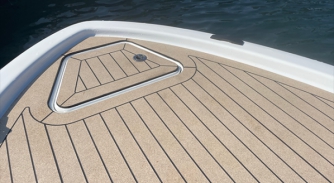
Cork – the natural choice
Cork has long been recognised for its durability and versatility in marine applications, but not always in yachting. Udo Kleinitz, business development at
Fleet
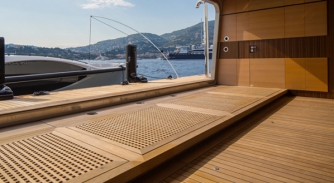
Teak decks, wood options and sustainability in yacht decking
An interview with André Hofmann, head of marketing & sales series yachts at Wolz Nautic, on the current situation in the teak market and plantat
Fleet
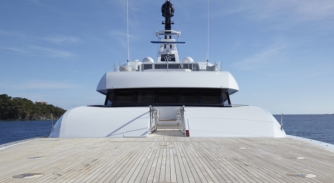
Deck to the future!
A deep dive into the drive to replace the endangered-teak supply chain with upcoming deck materials that are fast becoming the sustainable replacement options
Fleet
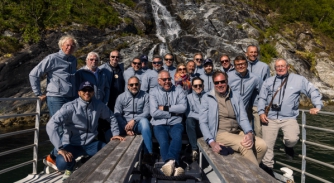
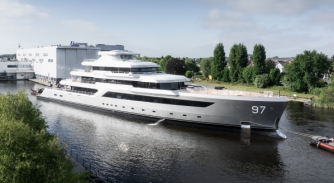
Success and succession
With a hydrogen breakthrough and a changing of the guard, could 2025 be Feadship’s most formative year yet?
Fleet
Related news
Please don’t patronise!
5 months ago
Cork – the natural choice
6 months ago
Deck to the future!
6 months ago
InNORvation’25 – the Movie
7 months ago
Success and succession
8 months ago
NEW: Sign up for
SuperyachtNewsweek!
Get the latest weekly news, in-depth reports, intelligence, and strategic insights, delivered directly from The Superyacht Group's editors and market analysts.
Stay at the forefront of the superyacht industry with SuperyachtNewsweek



